The 7 most damning findings from the report into Boris Johnson misleading parliament
The privileges committee report is packed with detailed criticism of the former prime minister
A damning report by parliament’s privileges committee has concluded that Boris Johnson misled parliament and recommended that he should be barred from having a parliamentary security pass in future.
The 106 page document, put together by the cross-party group of MPs with a Tory majority, is packed with detail and arguments. Here are the seven most damning sections:
Boris Johnson misled the house on an unprecedented scale
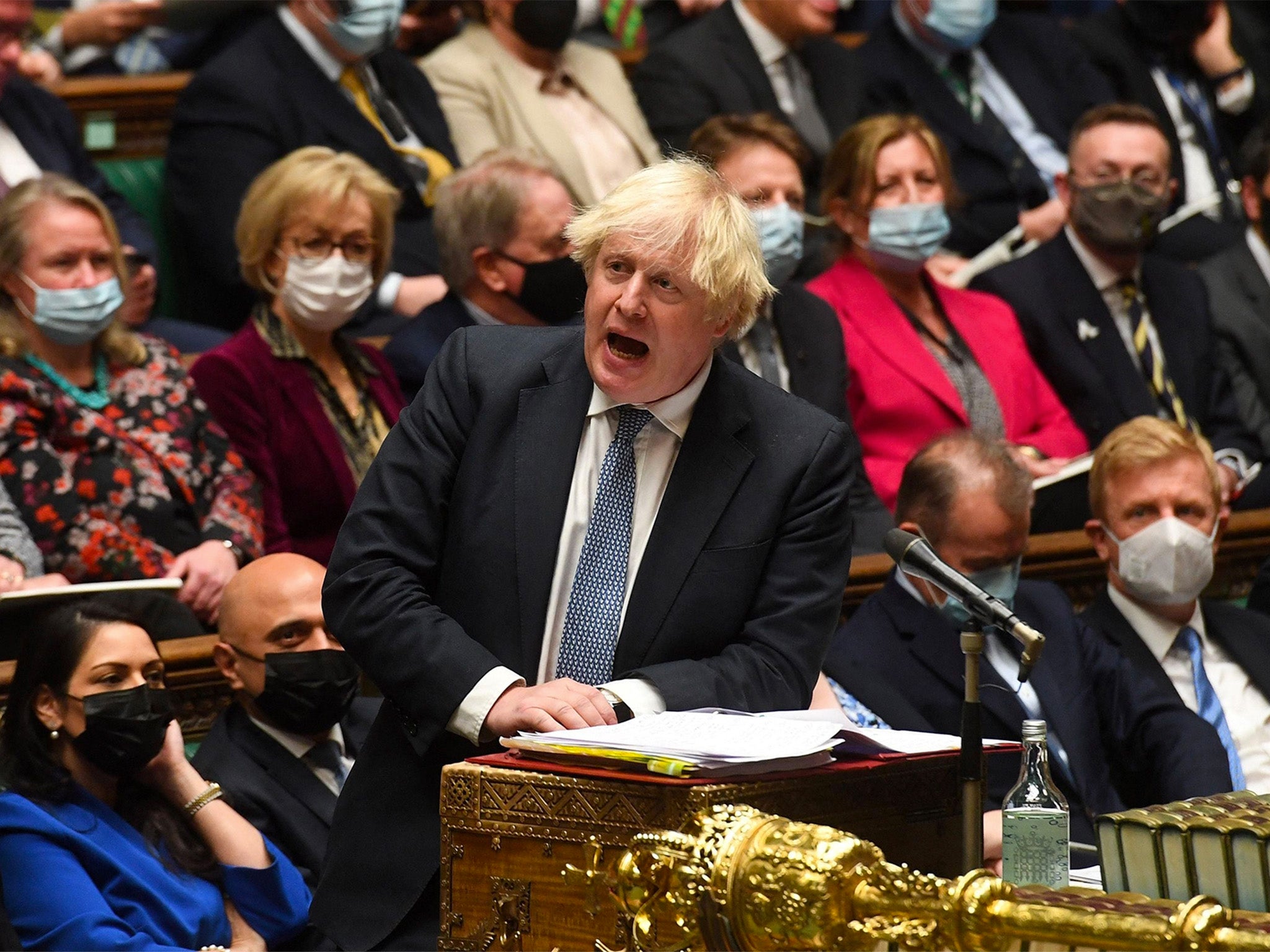
The report did not just conclude that the prime minister had misled parliament, but that he had done so on an unprecedented scale from the highest office in the land.
“There is no precedent for a prime minister having been found to have deliberately misled the House," the MPs wrote. “He misled the House on an issue of the greatest importance to the House and to the public, and did so repeatedly.
• Read our live coverage of reaction to the Partygate report here: Ex-PM’s final disgrace as lies finally laid bare
“He declined our invitation to reconsider his assertions that what he said to the House was truthful. His defence to the allegation that he misled was an ex post facto justification and no more than an artifice. He misled the Committee in the presentation of his evidence.”
The committee lists five different ways in which MPs were misled by the prime minister. Firstly, when he said that guidance was followed completely in No 10; secondly, when he failed to tell the house about his own knowledge of the gatherings.
The third way the committee felt parliament had been mislead was that Mr Johnson claimed he had relied on "repeated assurances that the rules had not been broken" – in fact, these supposed assurances "were not accurately represented", the MPs found.
He was also found to have misled the house by giving the impression he would have to wait for an investigation to conclude before he could answer questions – when in fact "he had personal knowledge that he did not reveal". The final occasion was when he "purported to correct the record but instead continued to mislead the House and, by his continuing denials".
An attack on our democratic institutions
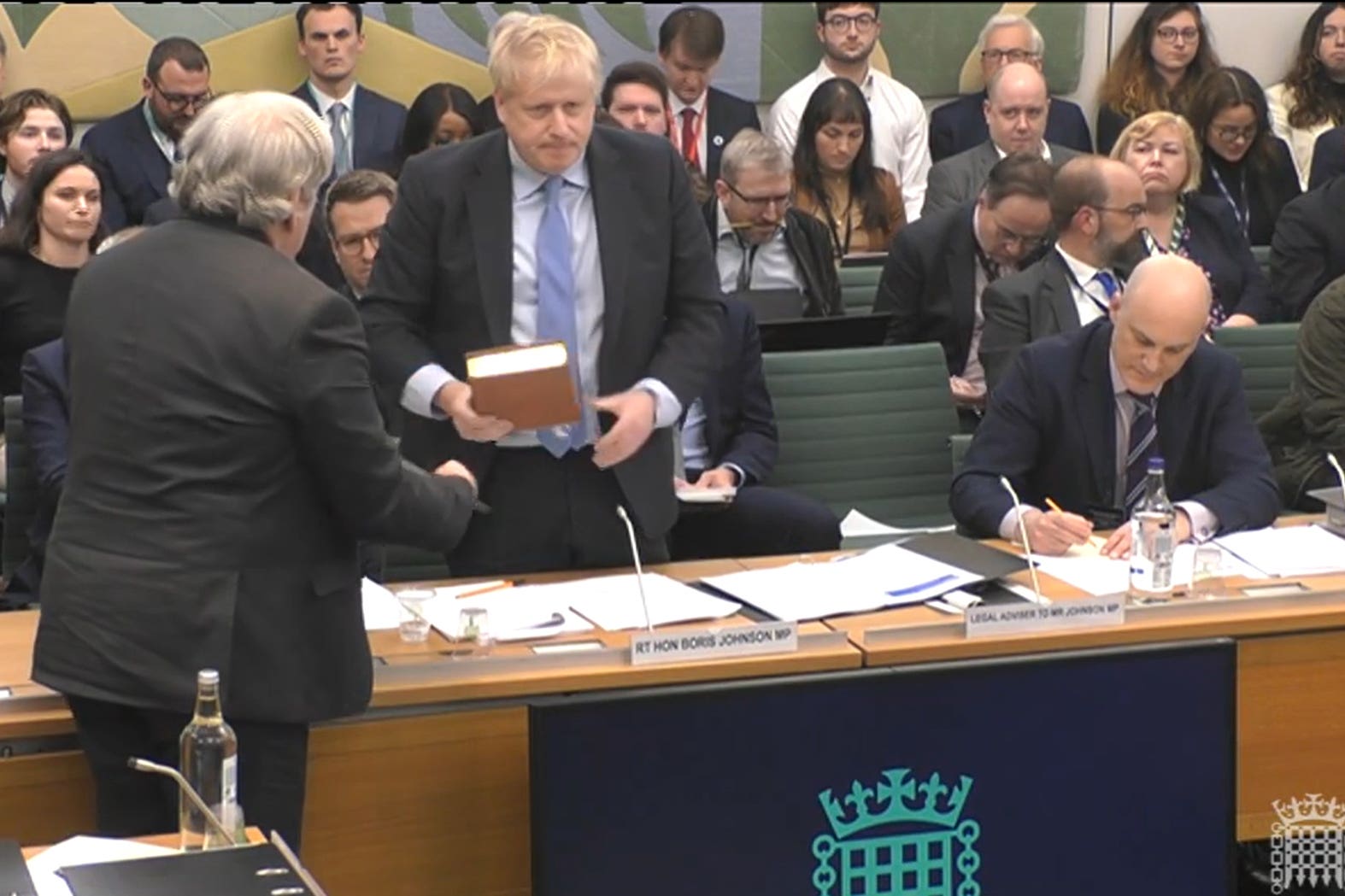
One of the areas the report focused on was the former prime minister’s 1,000-word resignation statement in which he blasted the committee’s investigation as a witch-hunt.
It would be an understatement to say that this broadside made things worse for the prime minister, at least as far as the investigation was concerned. The Committee has characterised it as “an attack on our democratic institutions”.
The statement did not “merely criticise the fairness of the Committee’s procedures”, the MPs said – “he also attacks in very strong, indeed vitriolic, terms the integrity, honesty and honour of its members”.
It concluded: “This attack on a Committee carrying out its remit from the democratically elected House itself amounts to an attack on our democratic institutions.
“We consider that these statements are completely unacceptable. In our view this conduct, together with the egregious breach of confidentiality, is a serious further contempt.”
Johnson previously dismissed ‘kangaroo court’ claims

The prime minister’s characterisation of the committee investigation as a “witch-hunt” and a “kangaroo court” was at odds with his earlier statements dismissing exactly those terms, the MPs noted.
While speaking to the committee the former PM told MPs the he respected their work, and “when pressed to do so, that he deprecated terms such as ‘witch-hunt’ and ‘kangaroo court’,” the report says.
“Notwithstanding his protestations of respect for the Committee, and his earlier deprecation of language such as ‘kangaroo courts’ and ‘witch-hunts’, we note that in his statement of 9 June Mr Johnson himself used precisely those abusive terms to describe the Vommittee,” the report said.
“This leaves us in no doubt that he was insincere in his attempts to distance himself from the campaign of abuse and intimidation of Committee members. This in our view constitutes a further significant contempt.”
A cynical attempt to manipulate public opinion
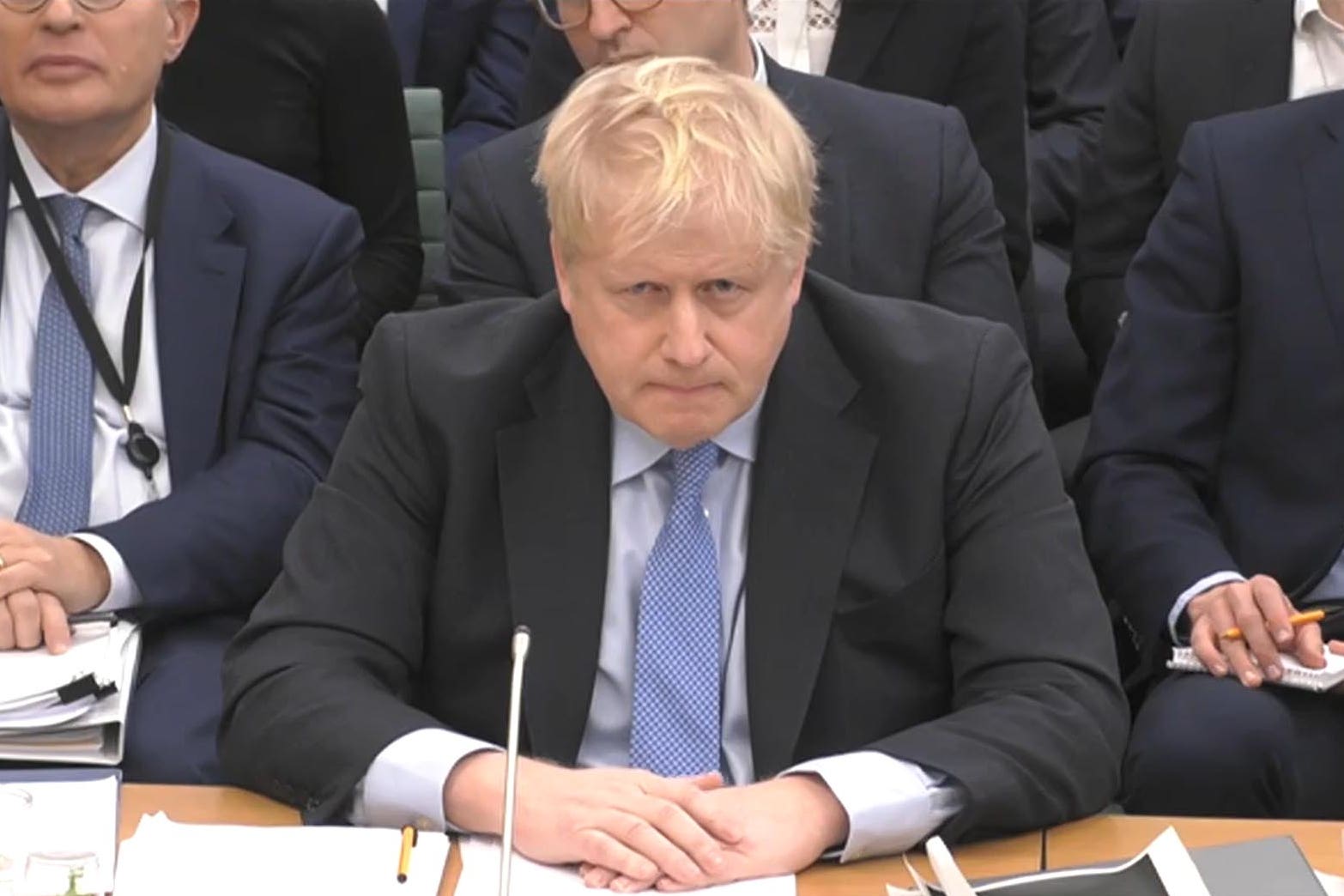
The committee was angry at the former prime minister’s conduct even before his incendiary resignation statement – describing some of his comments in front of the cameras as a “cynical attempt to manipulate member [MP] and public opinion”.
The MPs zero in on one episode during a committee hearing where Mr Johnson “accused the Committee of suppressing evidence which would be helpful to him”.
“We invited him to identify any such evidence. The Committee obtained that evidence from the witnesses he had indicated, supported by statements of truth. In the event he placed no reliance on it,” they said.
“The clear implication is that there was nothing in the evidence and his criticism in public was a cynical attempt to manipulate member and public opinion.”
Presence of interior designer and Carrie at work meeting unexplained

The committee goes into detail about what happened at each Downing Street gathering under Covid rules – but one passage stands out.
It is about his interior designer, and his wife Carrie Johnson, who attended a birthday gathering for the then prime minister in the cabinet room in June 2020 while rules were in place prohibiting such parties.
The prime minister’s defence of this was that the gathering was a work meeting that was absolutely necessary and so within the rules at the time – but the committee disagreed. (As did the police, who give him a fixed penalty notice).
“Mr Johnson was also unable to explain why he considered his wife and interior designer ‘absolutely necessary participants’ in a work-related meeting,” it says of their presence.
“His assertion that the Prime Minister’s family are entitled to use every part of the building does not constitute an explanation.”
There’s no way Johnson could not have known
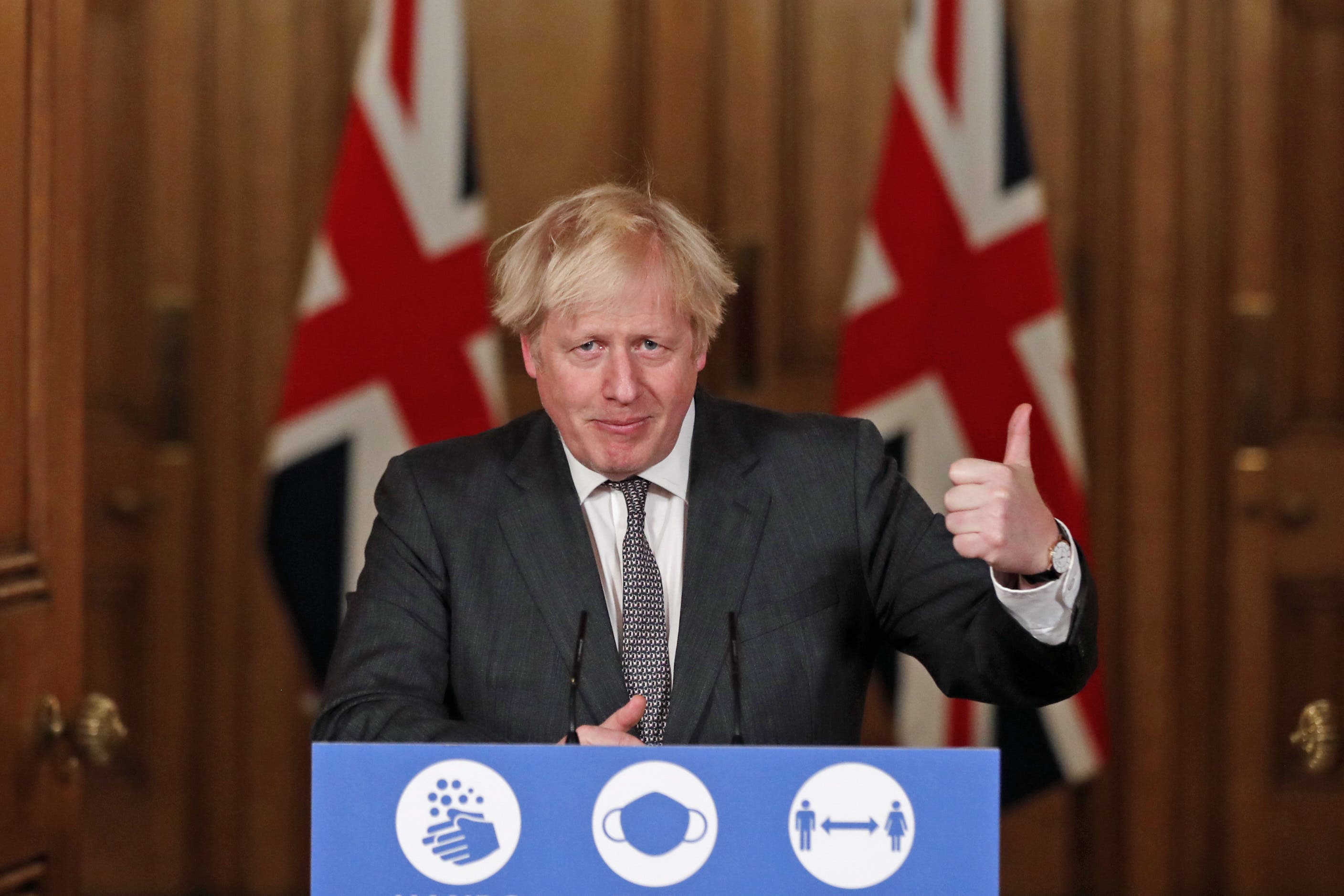
After going through the detail of the events, what Mr Johnson knew about them, and what he told parliament, the committee said there was simply no way the prime minister could not have known he was misleading MPs.
As the “most prominent public promoter” of the Covid-19 rules in daily press conference it was also simply not credible to believe that he was not aware of what was and was not allowed, they said.
“We think it highly unlikely on the balance of probabilities that Mr Johnson, in the light of his cumulative direct personal experience of these events, and his familiarity with the Rules and Guidance as their most prominent public promoter, could have genuinely believed at the time of his statements to the House that the Rules or Guidance were being complied with,” they concluded.
“We think it just as unlikely he could have continued to believe this at the time of his evidence to our Committee. We conclude that when he told the House and this Committee that the Rules and Guidance were being complied with, his own knowledge was such that he deliberately misled the House and this Committee.”
Five different contempts of parliament
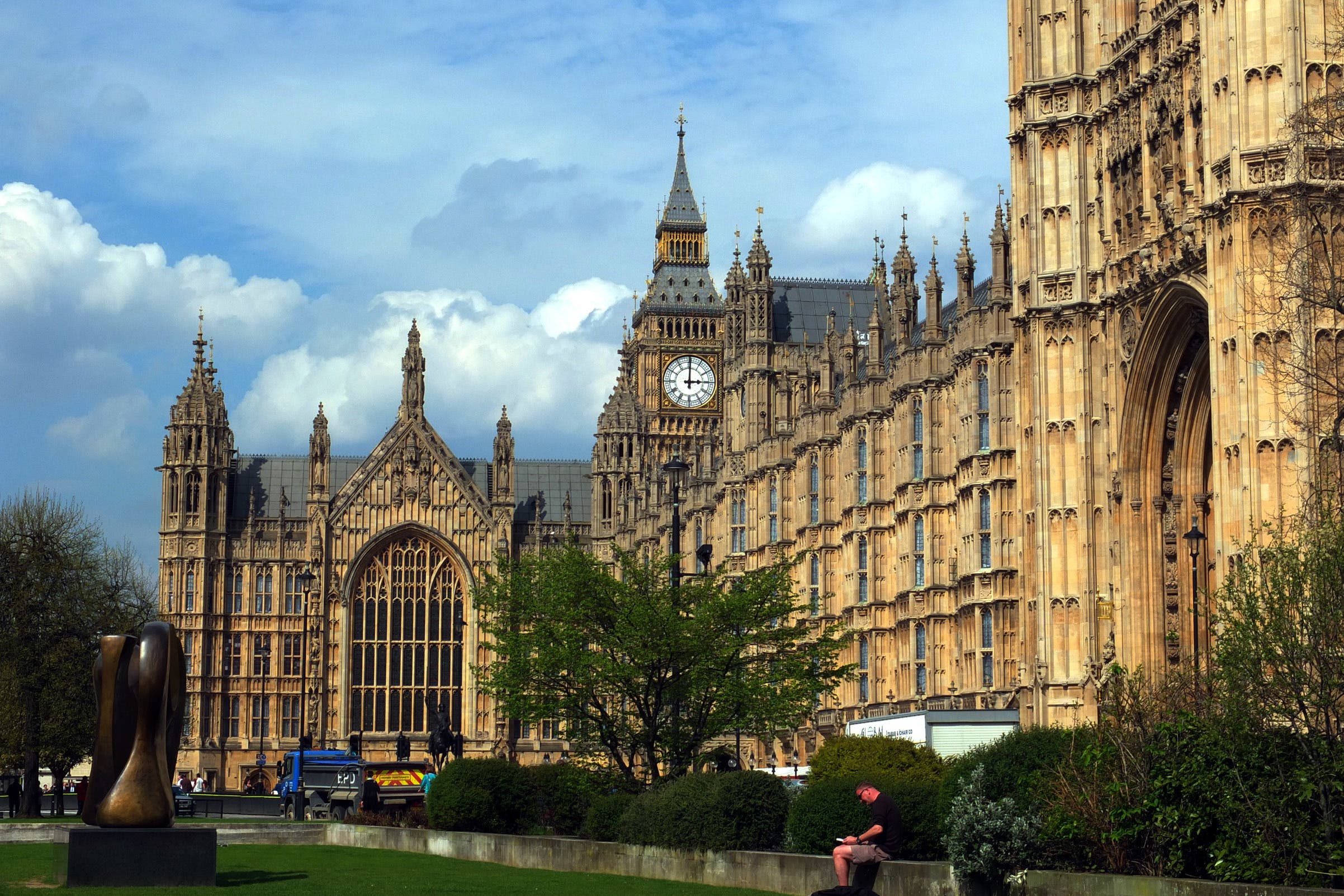
In total the committee says Boris Johnson is guilty of “repeated contempts” of parliament across five different thematic areas, which it bullet-pointed for clarity.
Firstly, the prime minister “deliberately mislead the house” (also in five different ways of). Secondly, was “deliberately misleading the committee” during the course of its inquiry.
The prime minister was also accused of “breaching confidence” of the committee by sharing details of its investigation when he shout not have, and additionally of “impugning the Committee and thereby undermining the democratic process of the House” with his resignation statement.
Lastly, the committee found that he was “complicit in the campaign of abuse and attempted intimidation of the Committee”, thus undermining it as a democratic institution.
This leaves us in no doubt that he was insincere in his attempts to distance himself from the campaign of abuse and intimidation of committee members. This in our view constitutes a further significant contempt.
Join our commenting forum
Join thought-provoking conversations, follow other Independent readers and see their replies
Comments
Bookmark popover
Removed from bookmarks